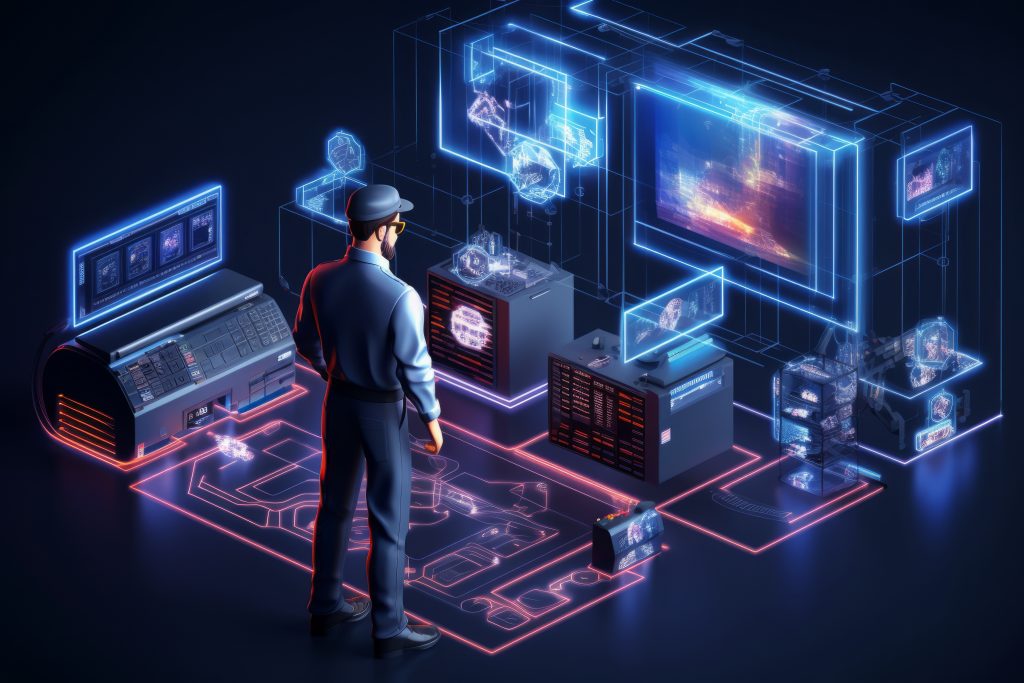
AI and cloud infrastructure are driving unprecedented growth in the IT sector. Businesses across industries are investigating the potential of hybrid IT in their digital transformation efforts. Most businesses nowadays prioritize agility, resiliency, and security as they focus on innovation, scalability, operational efficiency, and growth.
By using automation through AI/ML across hybrid cloud solutions, company heads may have several advantages, including adopting an automated, flexible, scalable, and secure platform while sustaining a cost-competitive edge in the face of evolving market dynamics. Eventually, this allows firms to optimize the value of their investments, generate long-term growth, accelerate go-to-market, and adapt quickly.
However, before businesses begin to build their hybrid cloud model, business executives need to address some important areas:
- App stratification to adopt multi-cloud and hybrid IT
- The correct architecture to adopt multi-cloud and hybrid IT
- Integrated platform to drive cost savings, operational efficiency, and cloud governance
Understanding the above key factors has an immense impact on maximizing and optimizing the benefits that hybrid IT provides.
Hybrid IT and its challenges, the role of AI/ML in helping mitigate these challenges –
Hybrid IT is an IT infrastructure model that blends aspects of traditional data centers (on-premises or in-house) with cloud-based solutions. Hybrid clouds are a combination of public and managed private clouds. It merges the best of both worlds, allowing enterprises to benefit from the public cloud’s scalability and cost-efficiency for flexible workloads while using a managed private cloud for fixed and regulated workloads.
While hybrid IT has a lot to offer, the infrastructure for it comes with its own set of challenges. Security & data protection, regulatory compliance, cloud sprawl, performance management, vendor lock-in, network complexity, and cost management are among the few challenges enterprises face while adopting multi-cloud and enabling hybrid IT. The two most common challenges are –
- Data Governance: As companies maneuver the complexities of managing data across public and private cloud environments, ensuring data security and compliance becomes more important and more difficult.
- Integration and Management: The technical challenges of integrating different types of cloud platforms and technologies can be intimidating. Therefore, ensuring seamless allocation of tasks, maximizing resources, and overcoming challenges in examining extensive data for business intelligence is crucial.
Inspecting your existing cloud model to transform it into a future-proof aligning with your company’s strategic business goals is the first step in your cloud journey. It will help you identify and address challenges real-time while adopting a multi/hybrid cloud. Emerging technologies like Artificial Intelligence and Machine Learning can help tackle these issues.
The fusion of AI and machine learning technology takes hybrid cloud management to another level. Through a multiplier effect, the combination drives transformation with result-oriented capabilities, such as intelligent automation, predictive and proactive analytics, and enhanced data processing. It helps companies obtain valuable insights from large volumes of data and enables them to make data-driven decisions.
AI/ML also improves the management and usage of hybrid cloud resources by efficiently distributing workloads, maximizing allocation of resources, and ensuring high performance across environments, including failure prediction and automation. It also allows advanced security and compliance to recognize and mitigate possible threats in real-time, identify abnormalities and patterns, and proactively address security issues.
Enterprises can use AI and ML to make decisions real-time, while running current applications and gain insights into the velocity of omnichannel data. An AI/ML-enabled, centrally managed platform in the cloud and at edge locations can seamlessly sync data pipelines with different connectors from apps, APIs, and databases to data warehouses and back. This enables intelligent decision-making using AI predictions based on edge operations data. Additionally, it gives consumers the ideal architectural direction and design.
Impact of AI/ML on FinOps
AI/ML-powered hybrid cloud models greatly impact FinOps by increasing overall productivity with considerable cost savings. AI/ML algorithms can be used to manage better and mobilize virtual machines (VMs), containers, and legacy infrastructure components. Natural language processing (NLP) and generative AI can also be adapted for hybrid cloud transformation, code debugging, and user experience (UX) improvement.
For instance, companies can identify customer segmentation by blending ML and current techniques to strengthen product expertise and marketing effectiveness. This directly reduces acquisition costs and increases retention rates.
Companies should focus on resiliency and build security solutions around data in rest and transit while architecting low-level designs.
AI/ML in hybrid cloud models also impacts customer-focused business operations by improving customer experience outcomes, speeding up response time, and achieving higher customer satisfaction (CSAT) scores. By conducting sentiment analyses, companies can identify and avoid issues with product experiences. This, in turn, positively impacts key performance indicators, turns reviews into actionable data, and contributes to the organization’s success.
Conclusion: Shifting Gears with AI/ML-enabled hybrid clouds
Automation holds very high potential at each and every stage of an organization’s cloud journey. Whether brands are taking the initial step towards adopting the cloud, looking to reduce bill amounts, trying to manage multiple cloud models efficiently, or aiming to modernize legacy applications, AI/ML has much to offer. Reimagining digital transformation with automation across multi-cloud and hybrid IT requires a holistic approach. It involves tech adoption, process reengineering, and organizational cultural shift. By embracing automation, companies. can unlock new efficiency, scalability, and innovation levels while effectively mitigating risks associated with the modern and ever-evolving IT landscape.
Anitosh Halder is the SVP, Business Head of Cloud and Managed Services at Sify Technologies Ltd.
Image Source: Freepik
